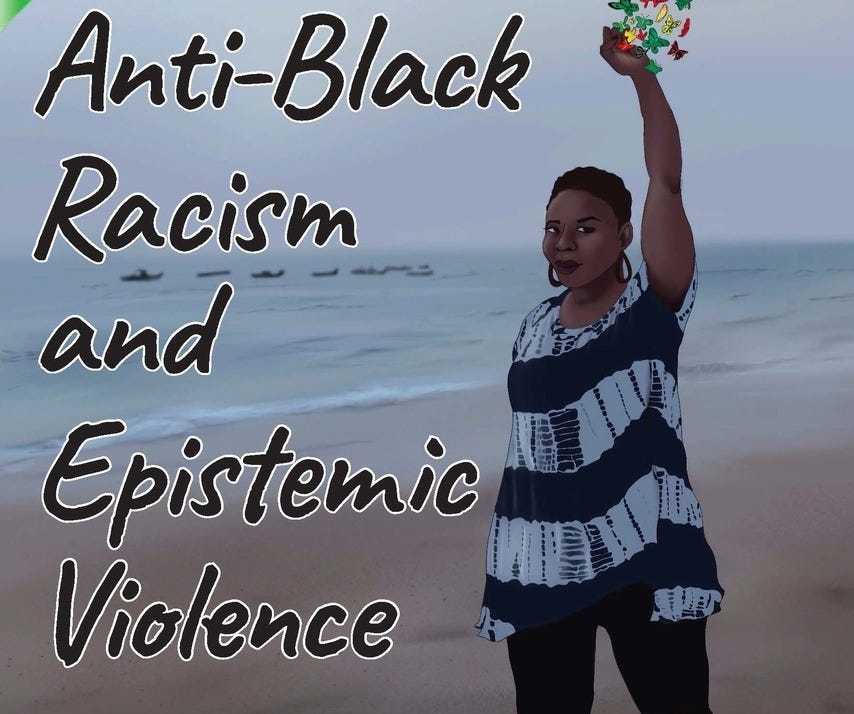I'm Gonna Do Some Epistemic Violence All Over His Posterior
Here is the abstract (with my paragraphifications and emphasis) from the peer-reviewed paper "The unbearable heaviness of climate coloniality" appearing in Political Geography by someone named Sultana.
The extremely uneven and inequitable impacts of climate change mean that differently-located people experience, respond to, and cope with the climate crisis and related vulnerabilities in radically different ways.
The coloniality of climate seeps through everyday life across space and time, weighing down and curtailing opportunities and possibilities through global racial capitalism, colonial dispossessions, and climate debts.
Decolonizing climate needs to address the complexities of colonialism, imperialism, capitalism, international development, and geopolitics that contribute to the reproduction of ongoing colonialities through existing global governance structures, discursive framings, imagined solutions, and interventions.
This requires addressing both epistemic violences and material outcomes. By weaving through such mediations, I offer an understanding of climate coloniality that is theorized and grounded in lived experiences.
You might not have believed it, but now you see the evidence, you have confirmed for yourself that the NPR crowd really does talk this way. On first reading, it seems each individual word is English, but when they're strung together the whole becomes something else. Academese. The language of people with nothing to say, but who must disguise this nothing by saying it at great length, and with deep shades of purple.
Then, on second reading, you become aware the author is mad about something, but you're not sure what. Something to with the weather, that it isn't identical everywhere. Or maybe it's the world ending, women and minorities hardest hit (yes, we now see this joke almost daily).
Incidentally, before I come to the main point (yes, I have one), let's examine one of the woke's favorite phrases, lived experiences. Are there unlived experiences? Can one experience something without living it? Obviously not. What is the point of gluing the lived to experiences?
Like with all advertising, it is to describe what the product is not. The lived experiences held up as exemplars are not, in fact, lived. They are imagined. They are fantasy, stories added to dull Reality in the desire to be a Victim. Our highest moral being.
On to “epistemic violences”! Though I have traveled the world and can cuss fluently in four languages, I had never heard this phrase before. Does "epistemic violence" occur when a man is forced to believe nonsense as if it were true? Cf. this Abstract. Or any regime media product.
Turns out, no. It's more of a synonym for mansplaining (which for you angry female academics and soyboys means when a man explains a difficult subject). In this case, it's when somebody with superior knowledge (I use that word in its technical, old-fashioned sense, and not in its modern use, which is a substitute for mere belief) tries to explain a thing to somebody with less knowledge.
Or somebody incapable of understanding the thing.
From the mouth of academics:
Epistemic violence in testimony is a refusal, intentional or unintentional, of an audience to communicatively reciprocate a linguistic exchange owing to pernicious ignorance. Pernicious ignorance should be understood to refer to any reliable ignorance that, in a given context, harms another person (or set of persons). Reliable ignorance is ignorance that is consistent or follows from a predictable epistemic gap in cognitive resources.
It goes on that way for some time. It's a lot of words to describe "talking down to someone"; or, rather, being perceived as talking down to someone by the someone. Or it means a person not accepting an explanation as fact even when the explainer is really, really earnest or the fact is wrong but desired.
In other words, it's all about the feelz. As many things are in our effeminate culture. Feelz explains the violence. Those suffering from pernicious ignorance really can feel like they have been attacked when Reality is exposed to them. That they haven't been attacked, and the violence is risible fantasy, completes the circle of proof.
Now the article from which this quote was pulled is critical of "epistemic violence" (angry female academics and soyboys: that means they say bad things about it). The article says we can blame the "Theory of Critical Social Justice" for inventing the term.
You won't be surprised to learn that white supremacy is at the root of all this. As are "patriarchy, cisnormativity, heteronormativity," and similar horrors.
Buy my new book and learn to argue against the regime: Everything You Believe Is Wrong.
Visit wmbriggs.com.




